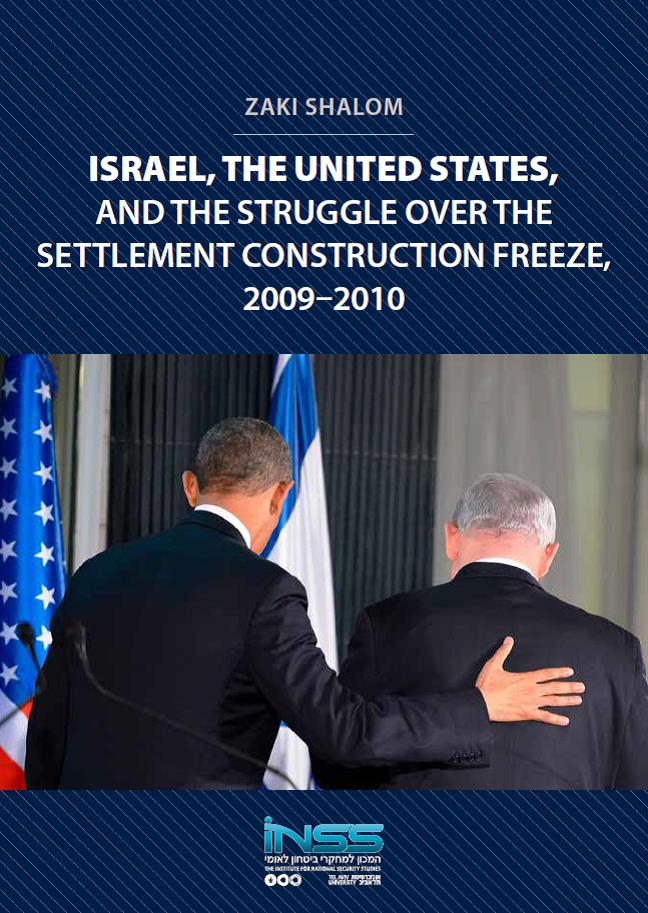Publications
Tel Aviv: Institute for National Security Studies, 2017

Israel, the United States, and the Struggle over the Settlement Construction Freeze, 2009-2010 sketches the long and winding road President Barack Obama took during his first two years in office to bring about an Israel-Palestinian agreement. Based on a wide range of sources and the testimony of senior members of the US administration and the Israeli government, the book describes how US-Israel relations deteriorated to the verge of a severe crisis. The author analyzes the reasons and constraints that kept an agreement from being advanced, contrary to the hopes of the new president.
When he assumed office, President Obama lent his weight and prestige to jumpstart a process that would lead to an Israeli-Palestinian agreement, shunning the advice of many within and outside his administration who argued that the gaps between the sides were too wide to allow a comprehensive agreement. Obama mistakenly believed that his international stature and pressure from the administration would force the sides to accept his outline. On the brink of a substantive rift between Israel and the United States, the president ultimately accepted a compromise on the issue of construction in the West Bank settlements. This opened the door to a limited thaw in United States-Israel relations.
With detailed precision, the book presents the events surrounding President Obama’s initiative for an Israeli-Palestinian agreement, including the Cairo speech, Prime Minister Netanyahu’s speech at Bar Ilan University, the crisis during Vice President Biden’s visit to Israel, and the eventual formulation of understandings on construction in the settlements. While President Obama’s efforts did not advance an Israeli-Palestinian agreement, the parties grew more deeply cognizant of their constraints and the limits of their power.


